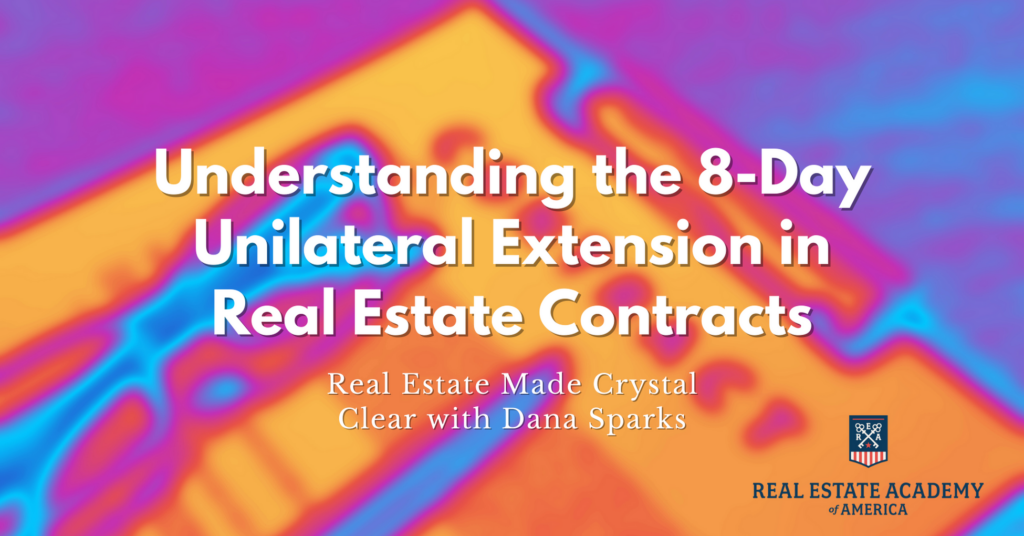Did the Buyer Cause the Lender Delay or Not? Understanding the 8-Day Unilateral Extension in Real Estate Contracts
When it comes to real estate contracts, particularly those governed by the Georgia Association of Realtors (GAR), there’s a provision that allows for an 8-day unilateral extension of the closing date. This means that one party can decide to extend the closing date by eight days without the need for the other party’s agreement. But when can this provision be used, and what happens if the delay is caused by the buyer?
What is the 8-Day Unilateral Extension?
The 8-day unilateral extension is a provision in the GAR purchase and sale agreement. Contrary to what some might think, this isn’t a Georgia law but rather a specific clause in the GAR contract. If the buyer and seller are bound by a non-GAR contract, this provision doesn’t apply.
The unilateral extension allows either the buyer or the seller to extend the closing date by eight days, provided they give notice to the other party before or on the original closing date. This extension can only be used once per contract.
When Can This Extension Be Used?
There are three main scenarios where the unilateral extension can be used:
- The seller can’t address valid title objections.
- The buyer’s mortgage lender or the closing attorney is delayed and can’t meet their obligations by the closing date. However, this delay shouldn’t be caused by the buyer.
- The buyer hasn’t received the required estimates or disclosures, and federal regulations prohibit the closing.
Lender Delay: Whose Fault Is It?
A common scenario involves the buyer’s mortgage lender being delayed. The key question is: Was this delay caused by the buyer?
If the buyer hasn’t provided the initial documents requested by the lender at the start of the loan process, then the delay is indeed the buyer’s fault. However, if the delay arises because the lender’s underwriter requests additional documentation during the underwriting process, then the delay isn’t the buyer’s fault. Even if the buyer takes some time to provide these additional documents, the initial request came from the lender, making it a valid use of the 8-day unilateral extension.
On the other hand, if the buyer’s actions, such as making a large purchase that affects their credit score or debt-to-income ratio, cause a delay, then the 8-day unilateral extension cannot be used.
Conclusion
Understanding the nuances of the 8-day unilateral extension is crucial for both buyers and sellers. It’s essential to know when this provision can be used and when it can’t, especially when it comes to lender delays.
For a more in-depth understanding and to see real-life scenarios, it’s highly recommended to watch the entire video on Real Estate Made Crystal Clear’s YouTube channel. The video provides valuable insights and clarifications on this topic, ensuring that both buyers and sellers are well-informed.
For more real estate tips and insights, subscribe to Real Estate Made Crystal Clear on YouTube and explore their range of informative videos.





